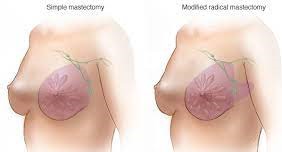A nurse is providing discharge teaching to a client following a modified left radical mastectomy with a breast expander. Which of the following statements by the client indicates an understanding of the teaching?
“will keep my left arm flexed at the elbow as much as possible"
“will have to wait 2 months before additional saline can be added to my breast expander"
“should expect less than 25 ml of secretions per day in the drainage devices."
“will perform strength-building arm exercises using a 15-pound weight."
The Correct Answer is C
Choice A reason:
"will keep my left arm flexed at the elbow as much as possible": This statement is incorrect because after a mastectomy, it's important to promote full range of motion in the affected arm to prevent complications like contractures and lymphedema.
Choice B reason:
“will have to wait 2 months before additional saline can be added to my breast expander" Typically, the process of adding saline to a breast expander begins much sooner, often within a few weeks after surgery, depending on the individual’s healing progress and the surgeon’s protocol.
Choice C reason:
"should expect less than 25 ml of secretions per day in the drainage devices":After a mastectomy, drainage devices are often placed to prevent fluid accumulation. The client should be aware that once the drainage decreases to less than 25 ml per day, it may be an indication that the drain can be removed. This shows an understanding of what to monitor postoperatively.
Choice D reason:
"will perform strength-building arm exercises using a 15-pound weight": This statement is not appropriate, especially shortly after surgery. Gradual and gentle strength-building exercises are recommended, and using a 15-pound weight could be too strenuous and potentially harmful.

Nursing Test Bank
Naxlex Comprehensive Predictor Exams
Related Questions
Correct Answer is A
Explanation
Choice A Reason:
"I should use salt sparingly while cooking. “Response A indicates the client's understanding of the dietary teaching. Using salt sparingly while cooking is consistent with a low-sodium diet. It shows that the client recognizes the importance of reducing sodium intake to adhere to the prescribed dietary restrictions.
Choice B Reason:
"I can use baking soda when I bake" - Baking soda contains sodium and is not typically recommended for someone on a low-sodium diet.
Choice C Reason:
"I should use canned instead of frozen vegetables" - Canned vegetables often contain added sodium for preservation, so choosing fresh or frozen vegetables without added salt is a better option for a low-sodium diet.
Choice D Reason:
"I can season my foods with lemon juice" - Lemon juice is a suitable alternative to adding sodium for flavour, and this statement shows the client's understanding of using low-sodium seasoning options.
Correct Answer is D
Explanation
Choice A Reason:
Applying lotion between the toes - Applying lotion between the toes can create a moist environment that may increase the risk of fungal infections. Lotion application should be done on the tops and bottoms of the feet, avoiding the spaces between the toes.
Choice B Reason:
Inspecting the feet every other day - Daily foot inspections are recommended for individuals with diabetes to identify any changes or abnormalities early and prevent potential complications.
Choice C Reason:
Soaking the feet twice a day - Excessive soaking of the feet can lead to maceration of the skin and increase the risk of infection, so it's generally not recommended. Regular washing with mild soap and water is sufficient for foot hygiene.
Choice D Reason
Trim toenails straight across When providing discharge teaching about foot care to a client with diabetes, the nurse should include information about proper foot care practices to prevent complications. Trimming toenails straight across is recommended to avoid ingrown toenails and potential injury. This reduces the risk of foot complications that can arise due to diabetes-related circulatory and neuropathic changes.
Whether you are a student looking to ace your exams or a practicing nurse seeking to enhance your expertise , our nursing education contents will empower you with the confidence and competence to make a difference in the lives of patients and become a respected leader in the healthcare field.
Visit Naxlex, invest in your future and unlock endless possibilities with our unparalleled nursing education contents today
Report Wrong Answer on the Current Question
Do you disagree with the answer? If yes, what is your expected answer? Explain.
Kindly be descriptive with the issue you are facing.
